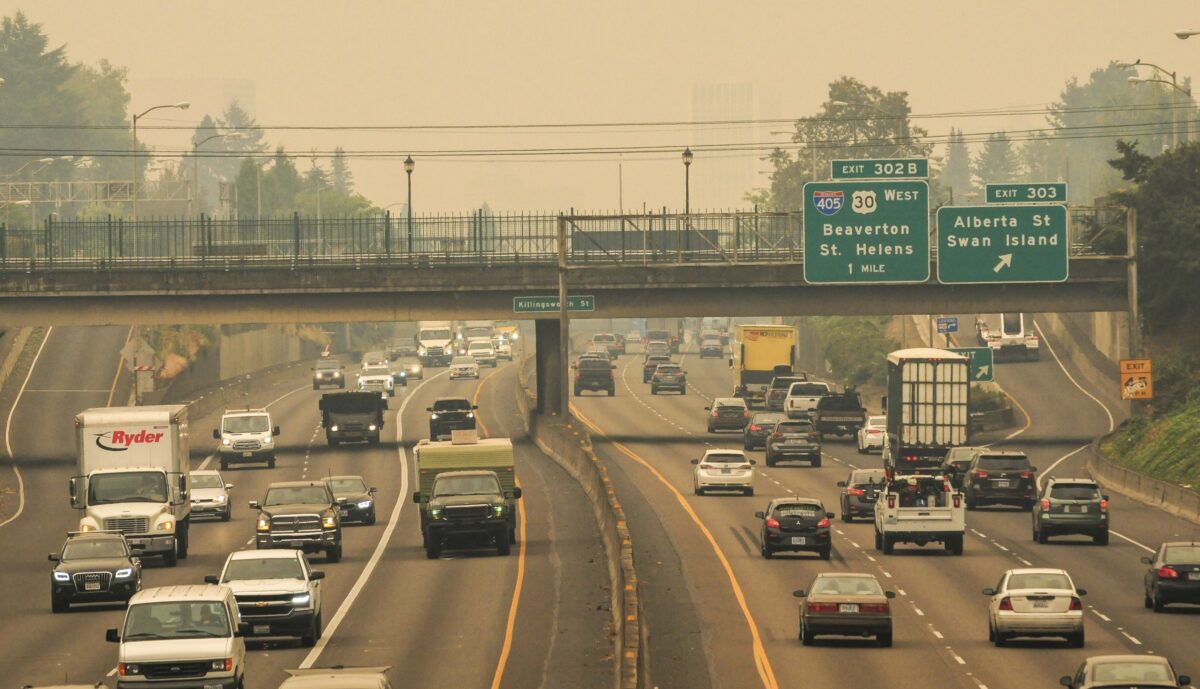
(Photo: Jonathan Maus/BikePortland)
“The range of e-bikes is exploding right now. I really think it is a new variable in the conversation.”
— Doug Kelsey, TriMet
Even before the Covid-19 pandemic took a cleaver to municipal budgets and dramatically impacted mobility patterns regionwide, congestion pricing was already a hot topic. Now there’s new urgency around the idea of charging people to use roads.
Currently Metro, the Oregon Department of Transportation and the Portland Bureau of Transportation are involved in separate — but related — discussions about if and how to implement tolls.
On Thursday Metro’s Joint Policy Advisory Committee on Transportation (JPACT) was briefed on the Metro Regional Congestion Pricing Study (not to be confused with PBOT’s Pricing for Equitable Mobility or ODOT’s I-5 and I-205 tolling efforts).
Metro Planner Elizabeth Mros O’Hara presented the study to JPACT members and said, “The logic behind congestion pricing is really simple. If you charge motorists a fee to use roadways and use the money on the things that you care about, people are likely to change their behavior.”
That change in behavior can have wide-ranging impacts not just to budgets and mobility, but to health outcomes. Mros O’Hara told JPACT members that after Stockholm implemented congestion pricing, acute asthma cases for young children in adjacent areas dropped by 50%.

Metro is exploring whether or not four different types of pricing strategies can support the region’s transportation priorities: A vehicle miles traveled fee where drivers pay for every mile they travel; A “cordon pricing” scheme where drivers would pay to enter a pre-determined area (like downtown Portland); A corridor pricing approach where drivers would pay a fee to drive on a particular road, bridge, or highway; or good, old-fashioned parking pricing.
Clackamas County Commissioner Paul Savas expressed concerns about fairness based on his view that people he represents don’t have the same breadth of transportation alternatives as those who life in Portland. “The transportation options in Portland are fantastic compared to what we have in Clackamas County,” Savas said. If viable alternatives to driving are not in place before tolling starts, Savas added, “It feels more like extraction of dollars than it is a change of behavior because there are no options.”
Advertisement
“65 to 75% of our of our population leaves the county every day and does not have access to those alternatives,” Savas explained. “All they can do is drive a car.” If people have no other options but to drive, Savas warned that any pricing scheme would remain “highly unpopular and highly controversial.” “I just want to just put it put that out there that that this is a big deal, and it’s going to be highly, highly politically charged,” he warned.

TriMet General Manager Doug Kelsey echoed Savas’ concerns. He shared the example of Copenhagen and Stockholm where congestion pricing has already been implemented and where viable alternatives to driving are well established. Kelsey said the potential of pricing “is absolutely immense” but that to be successful we must invest in alternatives beforehand.
Kelsey then brought up — rather unexpectedly — the potential of electric bikes and cycling in general. “I really encourage us to also consider e-bikes in here. The range of e-bikes is really… it’s exploding right now. I really think it is a new variable in the conversation.” “But even without e-bikes,” Kelsey continued, “the Copenhagen’s and the others of the world, they really factored cycling in…not just transit.”
“The e-bike phenomenon, I think, is here to stay. And it’s just going to be nothing but growth. So I wouldn’t underestimate or encourage us to be as part of our consideration to factoring the distance and power that e-bikes might be able to bring,” Kelsey said.
“This is not ideological. This is existential.”
— Chloe Eudaly, City of Portland

Portland City Commissioner Chloe Eudaly is a big fan of congestion pricing; but she remains concerned about its fairness. She also thinks e-bikes can play a significant role in allowing more people to move around without having to drive — and pay new tolls that come with it. “We now have a full e-bike fleet [as part of the newly expanded Biketown bike share system] and we’re deploying that fleet in east Portland, which is greatly expanding bicycles as a viable transportation option for commuters across the city,” she said.
Eudaly reminded JPACT members that every decision they make must keep in mind that 40% of greenhouse gas emissions in Oregon come from transportation emissions. “This is not ideological,” she said. “This is existential.”
Eudaly said tolling has potential to help the region achieve both climate and revenue goals; but it must be done carefully to not unfairly impact people who rely on cars. “The City of Portland, despite how dense it is, despite our great transit system, despite how walkable and bikeable many of our neighborhoods are — we have a long way to go before we could consider implementing congestion pricing on our roadways,” she said. “There’s a lot of work to do, people need alternatives, but this is absolutely the time to start considering these options.”
Metro plans to continue studying options through the end of 2020 and decide on next steps early 2021.
— Jonathan Maus: (503) 706-8804, @jonathan_maus on Twitter and jonathan@bikeportland.org
— Get our headlines delivered to your inbox.
— Support this independent community media outlet with a one-time contribution or monthly subscription.



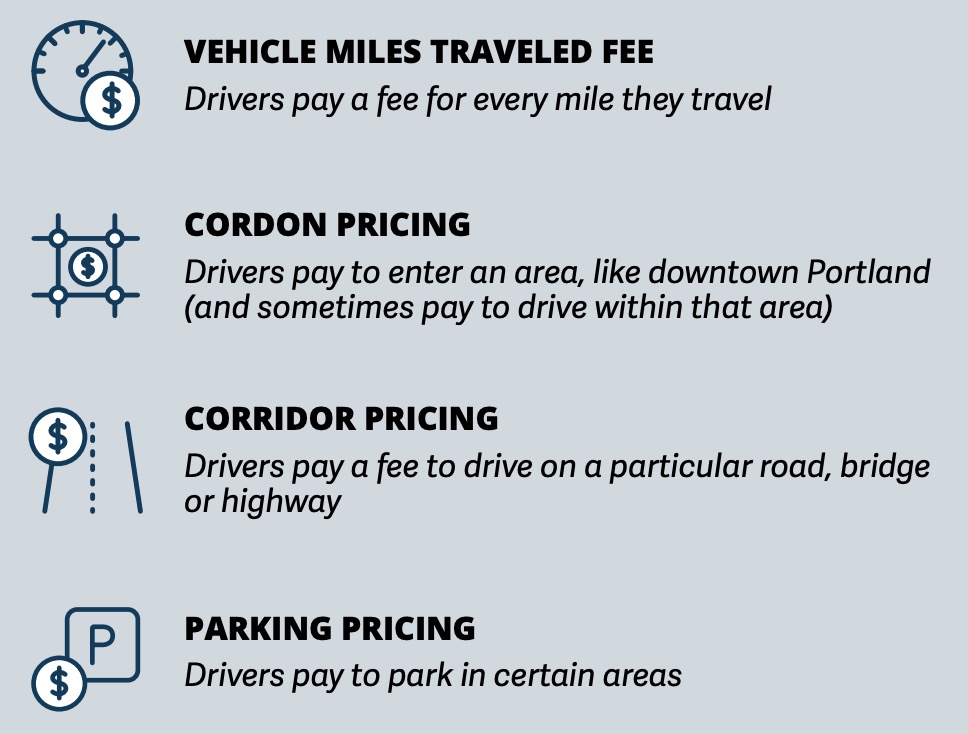
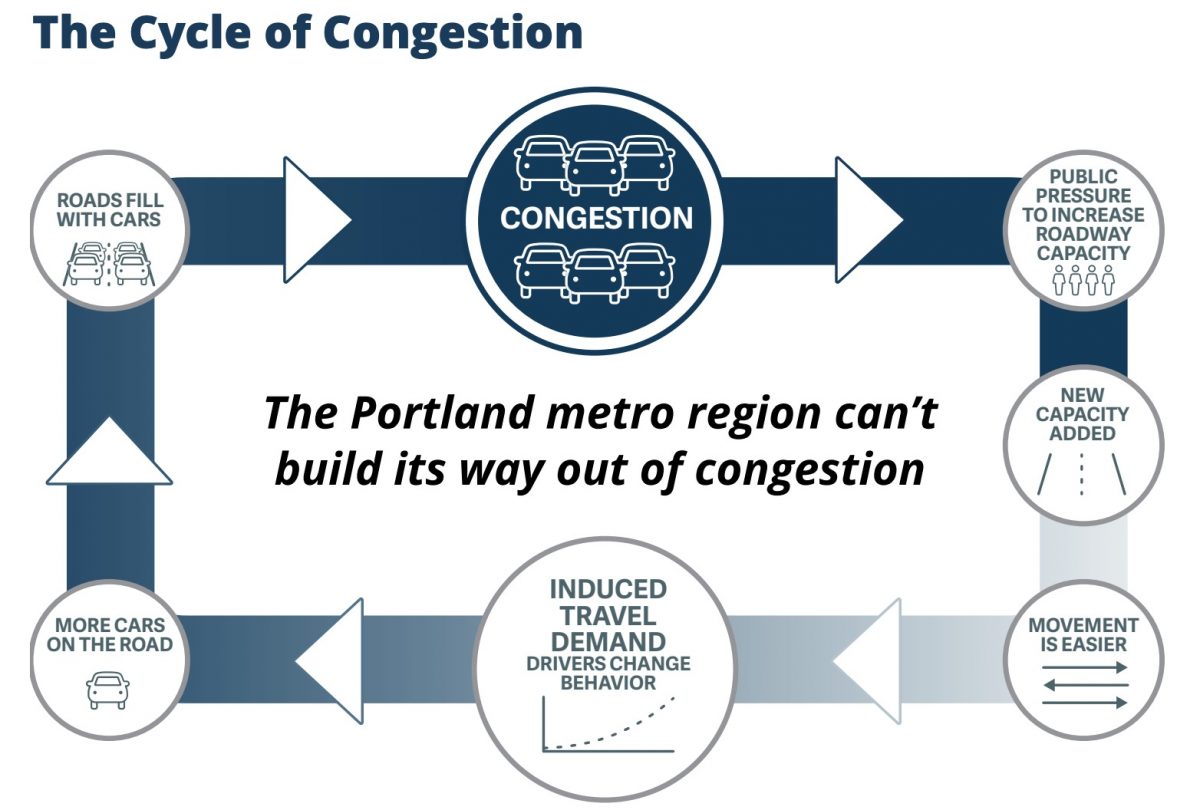
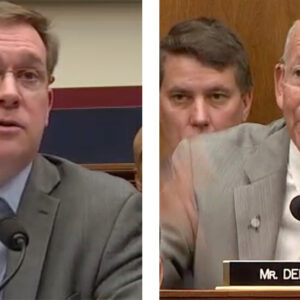
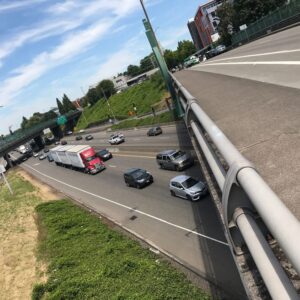
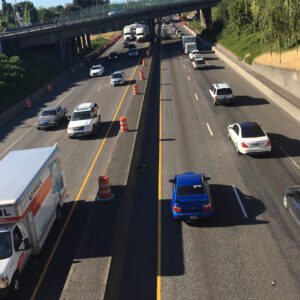
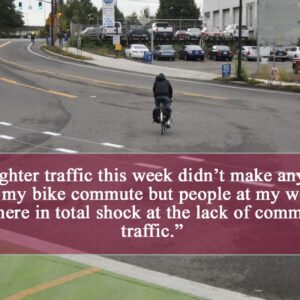
Thanks for reading.
BikePortland has served this community with independent community journalism since 2005. We rely on subscriptions from readers like you to survive. Your financial support is vital in keeping this valuable resource alive and well.
Please subscribe today to strengthen and expand our work.
An important part of my Metro platform is to lobby the legislature to get the electric vehicle tax credit extended to ebikes!
Glad to hear this. This should be a no brainer and I have no doubt there would be massive business and voter support for this.
Yes both Chloe and Doug are right! To make biketown a viable option it needs to be invested in like public transit.
Biketown should be free for any Portland resident and we need a lot more stations in east Portland.
I cannot wait to hear the arguments about “Fair” congestion pricing. It will probably devolve into POC paying 3/5 of the same rate as a privileged white male.
Technically, it’s not that hard to have adjustable rates on EZ Pass transponders in residents’ cars. Anyone who qualifies for a reduced fare bus pass could just as easily get such a transponder for their car based on their qualifications for food stamps (Oregon Trail), subsidized housing, SNAP, unemployment insurance, homelessness, etc. Their tolls then would be on a sliding scale based on their relative poverty, both in Oregon and Washington state.
The reverse could also be done – higher rates for SUVs, semis, F350s, people with proven offshore bank accounts, Litespeed owners, etc.
And thus was born the great transponder black market.
Too late, it already exists!
I hope my house will double in value by then so I can free myself from this wildness.
But Eudaly mentioned “fair”. Fair is applying the same standards to all regardless. This will become an “equity” issue, and in the long run lowering costs for certain classes of people will likely increase usage.
The items you are listing are public benefits provided to less affluent people. Should “decreased costs to drive on freeways” be one of those? It seems counter-intuitive to the desire to reduce Vehicle Miles Traveled.
That of course depends on your definition if “Fair”, a highly contentious subject of much political debate: “Fair” is also applying the same tax rate to everyone, based on their income or some other measurable socio-economic variable. The Portland Arts Tax is unfair as it penalizes poor people more rich people, as do (to a slightly lesser extent) sales taxes. Property taxes generally impact rich people more than poor, except those who pay property taxes indirectly through rent. Income taxes are generally considered “fair” except for those who are able to avoid them by being paid entirely in cash or those who are able to shelter their income. Any tax, fee, or toll, no matter how “fair”, can be illegally and successfully evaded by the unscrupulous – the more a tax is seen by society as being “fair”, the less likely it will be widely evaded.
There is a “Want fair? Go to the State Fair!” joke in there someplace. I’m actually quite surprised Oregon has not instituted “Fair” pricing at the State Fair; based on social indicators.
This is very exciting stuff. So much potential to seriously and urgently focus on mobility infrastructure to encourage folks to cycle. E-bike rebates/credits are key as well; gotta make it inexpensive and undeniably more efficient and safer than driving before folks hop on en masse.
Love the idea of making Biketown free; would extend that to public transit as well. Maybe a bit of pipe dream but if we want to get people out of cars we have to make driving the least viable choice.
One of the interesting “blind spots” / ‘fairness tests’ for many US public transit systems…is that the strong urge in providing free parking at suburban station hubs is rarely tied to the equity discussion about either charging a nominal rate for this parking OR making the first/last mile on transit free to get to these hubs or providing free [very] secure bike parking.
TRIMET: “You can park for free for up to 24 hours at a TriMet Park & Ride.” https://trimet.org/parkandride/index.htm
The only place we both agree is that these suburban P&R lots make great FTA funded land banks!
Whether or not free parking is “fair” is open to debate, but if the goal is to get folks out of their cars, not charging for parking at P&R lots is probably essential. Are you aware of a more effective solution?
Policies like these seem to be a choice between theoretical “fairness” and the practicalities of getting people to use transit.
The better way is to build transit where people actually live, or build it in places that can and will add dense housing.
The problem is that getting transit closer to where people live would be prohibitively expensive. Changing development patterns might help 20-40 years down the road, but it won’t get people on transit today.
Solving transit problems for the distant future is all well and good, but we also have to deal with what we have today, or that future will never arrive.
At $20,000 or more per parking spot, plus maintenance costs, park-and-ride garages are also very expensive.
Many P&R lots are unstructured and are a lot less expensive. But, using your numbers, if a parking structure lasts 20 years, $20K is $1000 a year (before federal funds kick in, which probably cuts the price to half that). How many buses lines can you operate for that? Would an underutilized semi-rural bus route increase or decrease emissions?
I’m not arguing for free parking; I’m arguing that TriMet’s planners probably have some clue what they’re doing. Why do you think they botched the job?
Ridership on the green and orange lines are both less than expected:
https://www.oregonlive.com/commuting/2016/10/max_orange_line_riders_arent_s.html
“Forecasts used to help justify federal funding for the project called for 17,000 average weekday trips in 2016. The Orange Line has so far averaged less than 11,000.”
It’s hard to make predictions, especially about the future. It’s easier to see that trying to fill the trains without parking in the outer areas isn’t going to work. Heck, as you point out, it isn’t really working even with the parking, and you quoted pre-covid numbers.
I think you are referring to Transit Oriented Design.
One thing I have always wanted to see was a land use model that designed the transportation network first…and then model how the land uses fell into place around a predesigned transit and road network.
In most US cities, the head or director of the transportation department or bureau is typically an engineer, public administrator, or in rare cases a transportation planner – and of course you get what we are all familiar with, a strong dis-connect between the publicly-directed and designed transportation network and of land uses by everyone else, including by other public agencies. However, I have come across cities here and there that eventually figure out that the best person to be in charge of their DOT is a career land use planner. Which is what happened about 15 years ago in Charlotte NC – they hired a land use planner as head of their DOT (they still have the same guy) and the city of 900,000 has gone through a huge transformation. It’s not perfect – one can’t easily undo a century of car-dominance and 3 centuries of racial segregation overnight – but the city has an extensive and rapidly-expanding protected bike network, light rail with urban TOD station areas, rapidly-growing urban clusters around existing transit (unfortunately with rapidly-growing rents and homelessness too), a city bike-share program, and a thriving urban scene.
Two of the most studied contrasting examples of the land-use/transportation connection are at Reston VA, a wealthy TOD, and Tyson’s Corner VA, a very typical freeway shopping mall development. Both are very close to each other, on the Silver Line of the DC subway, and both are near Dulles Airport and Washington DC, so they are very easy to visit and compare/contrast.
I used to live in DC during my very brief stint at the EPA.
How did you like living there?
I was there for 5 years (95-00). I enjoyed aspects of it – the mountain biking was pretty good and it was really interesting to live in a city that had so many people from around the world. It really was pretty diverse.
Every time I would visit I felt I made the right decision in moving away. It’s a nice place to visit but a better place to leave.
I periodically visit DC, I now live about 5-8 hours away by train (2 routes), and I have wondered what it would be like to live there. Your views on DC are exactly how I feel about Portland, having lived in different parts of the city over an 18-year period. Every time I visit Portland now, I’m eager to leave.
It’s been 20 years in PDX for me.
I’ve probably got another 12-15 or so here before I retire and move somewhere else…unless things change.
I know it sounds like everyone’s take on Saturday Night Live – “It was great when I was younger but now it just sucks.”
Objectively speaking, 20 years ago, Portland was cleaner, less crowded, and was significantly cheaper; now it has better restaurants, is safer, more generic, and has an Ikea.
I moved to Portland in 1997 to go to get a masters in planning, but I stayed because it was relatively cheap and much better than most US cities to ride a bike in or use public transit, which is important to me because I never learned to drive. I left after 18 years because I could no longer afford to live there – times had in fact changed and so had I – and many other places caught up with Portland by then in bike infrastructure and transit. Portland has always been a bit filthy in multiple ways, it’s part of its character. When I visit, there are aspects I miss – Powell’s for example – and there other things I don’t miss – cold rude people for example. But really, it has always been a bit generic of a city, a bland Midwestern city that happens to have a West Coast river port with a certain pleasant vibe that no longer suited me. So I moved on, discovered other cities that fit my personality and low income better.
TOD was all the rage when the Blue Line was built, and I believe the route was selected to connect areas that had not yet been developed so that transit would influence what got built. You can see for yourself if you like the results.
The west side MAX line is a success story. They got a bit lucky that the existing railroad ROW presented a lot of good TOD opportunities, and Washington County has boomed in the past few decades. They spent money on ROW where it made sense: tunneling under the west hills.
In contrast, SW light rail is “saving money” by avoiding a tunnel under OHSU, but this causes they line to completely miss the denser villages along the way: Hillsdale and Multnomah. Both are perfect candidates for up-zoning and TOD.
I have a similar impression of the Orange line–it’s a train to nowhere, passing through sparsely developed areas, trapped between a rail line and a highway, ending at an area of car-oriented commercial development. Basically it’s half of a line to Oregon City. Oregon City is of course in Clackamas County, where voters rejected transit but now, hilariously, a commissioner is complaining that they lack transportation options.
Around 80% of Portland’s new market-rate housing is class A luxury housing. So you are essentially arguing that we should only build transit in areas that are accessible to the rich.
This will be a huge boon…to owners of suburban/exurban office parks and shopping centers. I can see substantially raising the price of daytime parking as viable but, the congestion and cordon pricing will kill any remaining retail and restaurant businesses downtown. People will come in to work out of necessity and then flee at quitting time. The general perception amongst the public is that you have to pay extra to shop at the downtown Apple Store or have a nice dinner in The Pearl, then the Apple Store, Cheesecake Factory, and free parking/no tolls at Washington Square looks like a better option. Work-from-home has reduced the need for expensive downtown Class A office space and has been so successful that when offices do re-open, workers will balk at returning in part due to the new tolls and increased parking.
I also see that we are still flogging the old “Copenhagen” and “E-Bikes” things. Really? The adopters/believers have already bought in over the past decade plus. In another month, the weather will reduce the number of riders as it always does. Without the pandemic and resulting unemployment/WFH, car traffic would be increasing along with the population. Newer bike infrastructure, better e-bikes, and bikeshare (and scooters) haven’t made any real difference. Bikeshare is notoriously difficult to use (broken keypads, no bikes when you need them at popular locations), e-bikes are outrageously priced and subject to the same weather/handling concerns as regular bikes, and PBOT keeps calling new intersection paint schemes/traffic calming devices “A MAJOR VICTORY!!!” rather than building real separated lanes and unfettered bicycle highways like those found in Europe (where you can crank for miles at higher speeds without auto crossings, stops, detours through neighborhoods, etc.).
If we’re not careful congestion pricing could destroy the economy of downtown Portland the same way those $8 bridge tolls have killed the bay area’s economy. Nobody goes to downtown San Fransico anymore because it’s so crowded and there’s no parking. There’s no business because the tech companies are doing so much business.
They’re actually leaving. But please remind me of what is so desirable in downtown Portland that I would actually want to go and spend time or money? But to add to your SF idea
https://www.prnewswire.com/news-releases/san-francisco-residents-are-leaving-at-an-unprecedented-rate-new-data-from-relocation-website-movebuddhacom-301053118.html
There’s Pioneer Place, the funnest of malls.
Not to mention sometimes the Apple store just gives away free products.
Why, all the people watching of course! There is artwork being done daily (graffiti), fireworks, performance art (window breaking) and all the singing and dancing!
Is the old didactic guy still preaching at Pioneer Courthouse Square?
There’s no doubt in my mind that eBikes will continue to become a larger part of the cycling community but I will be very curious to see what the the Biketown usage rate is once the weather turns, I just don’t see eBikes as a replacement for any mode (for most people) during the “bad” weather months.
For tourism it shouldn’t be much of an issue. For most of the USA, Japan, and Europe, summer is the wet season, so visiting Portland in the winter and getting rained on is a minor inconvenience – Portland is even touted in Japan as a “soft city” due to its continuous light rain and mist. The rain we get on the East Coast are much heavier droplets that totally soak you within 5 minutes without an umbrella – rain jackets are utterly useless – so the West Coast winter rain provides really the only convenient opportunity for Americans to use their Gore-Tex outerwear.
RIP Gore-Tex dude #PraiseHim
Amen. Robert Gore: https://www.bbc.com/news/world-us-canada-54224405
I don’t know about that. At least for me, somehow the darkness and rain of Portland winter always added a few minutes to my climb over the West Hills (and FWIW, the snow and slush of Minnesota winters slow my riding here even more). Even if I still had to dress for the rain on an e-bike, the commute would feel like a whole lot less of a slog, and I’d have done it closer to 100% of the time.
Are you in MSP?
Yes, moved from Portland 6 years ago.